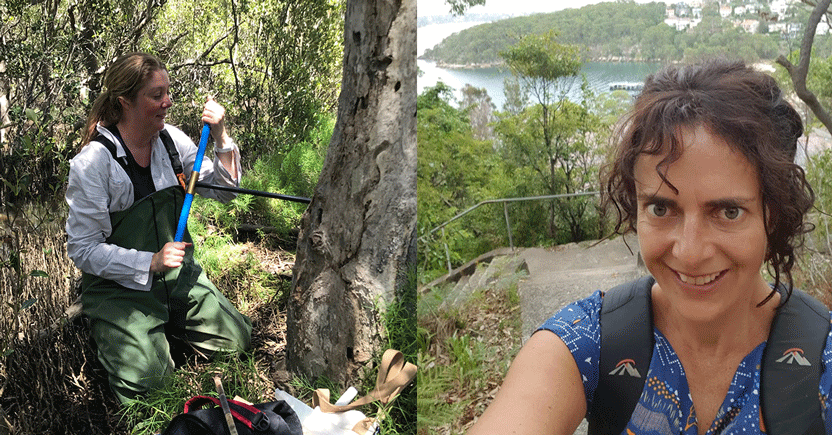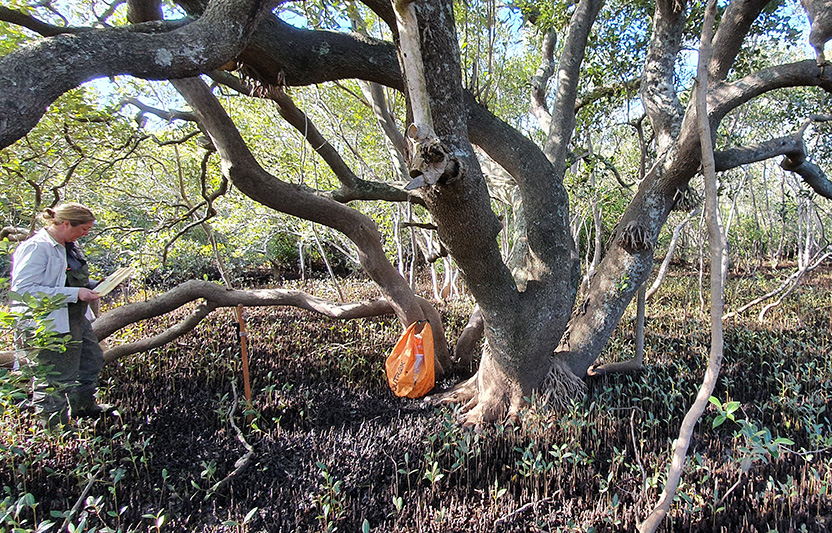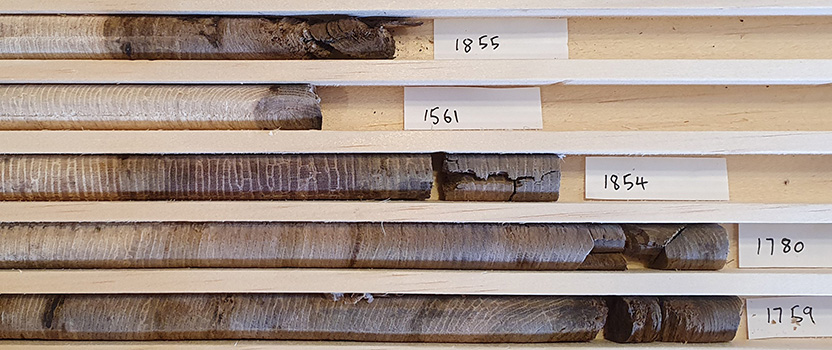
Using climate clues stored in mangroves to better understand our history of droughts and flooding rains, and how storms reduce the ability of kelp forests to fight ocean acidification—these are the outcomes of two projects awarded funding in 2020 through the Thomas Davies Research Grant for Marine, Soil and Plant Biology.
The grant of up to $20,000 is awarded annually and funded through a generous philanthropic bequest from the estate of the late Thomas Lewis Davies to the Australian Academy of Science.
One recipient, the University of Newcastle’s Associate Professor Danielle Verdon-Kidd, set out to improve our ability to quantify the future risk of extreme droughts and floods in New South Wales by tapping into new sources of pre-instrumental climate information.
Using cutting-edge dendrochronology (tree-ring dating) techniques in grey mangroves, Associate Professor Verdon-Kidd’s team found the oxygen isotopes in the trees’ growth layers could be used as a reliable hydroclimate proxy. They could measure the proportions of freshwater and seawater the trees were exposed to throughout their lifespans, providing important clues on rainfall.

Since several trees dated back to the mid-1700s and one was found to be 500 years old, this approach allowed Associate Professor Verdon-Kidd to collect data over several centuries—further back than existing instrumental records.
“The longest gauged rainfall record for the surrounding region extends back to 1862, so core samples from these trees show potential for significantly extending the local instrumental hydroclimate record for the lower Hunter wetlands,” Associate Professor Verdon-Kidd said.
“Importantly, the samples cover a period of documented—but not yet quantified—climate extremes, including Sturt’s Drought [1809–30], which caused the Darling River to cease flowing.”

The grant helped to fund the fieldwork, travel, lab analysis and associated conference presentations for herself and PhD student Matthew Goodwin, who has also worked closely on the project.
Associate Professor Verdon-Kidd said the grant had helped set her career on a new and exciting trajectory over the last few years.
“This award has provided me with an opportunity to extend my climate extremes research into paleoclimate data development using novel—overlooked until now—tree species,” she said.
“I believe this award has contributed to my recent success in an ARC Discovery grant on reconstructing climate extremes across the Pacific using stalagmites, and my promotion to Associate Professor in January 2023.”
Due to COVID-related delays, the lab analysis is still underway, but Associate Professor Verdon-Kidd said they were on track to develop the first high-resolution hydroclimate reconstruction for coastal NSW this year, which she hoped to publish in a scientific journal.
The other award recipient, Dr Elisabeth (Beth) Strain, moved to the University of Tasmania shortly after being awarded the funding in November 2019 but also had to navigate significant delays to fieldwork due to the pandemic and unseasonably rough weather that limited diving trips in 2021 and 2022.

Despite the setbacks, after studying the changes in wave height, pH and dissolved oxygen in the seawater of kelp forests and barren habitat, her work has shown that kelp forests’ abilities to combat ocean acidification are hindered by decreases in kelp density and increases in wave height.
“Field measurements demonstrated that natural kelp forests had higher values of seawater pH and dissolved oxygen during the afternoon than barren habitat, but the differences were only significant when conditions were calmer,” Dr Strain said.
The research will make a significant contribution to our understanding of the role of natural kelp forests in modifying seawater chemistry, Dr Strain said.
“This suggests the benefits of kelp forests in providing local climate refuges to calcified species from ocean acidification are variable through time and could be dampened by the increased wave exposure and storminess associated with climate change,” she said.
Dr Strain said the award allowed her to purchase equipment for her research, build her scientific profile, and develop an ongoing international collaboration with a US-based researcher who has significant expertise in her field.
Dr Strain presented at two international symposia in early 2023 and has a paper currently under review with a scientific journal. She was also invited to collaborate on a large kelp forest restoration project in Tasmania funded by the Sea Forest Foundation.
Applications for the 2024 Thomas Davies Research Grant for Marine, Soil and Plant Biology are now open, along with other funding opportunities.
The 2023 recipients of the grant are seeking to understand the drivers of wheat responses to warm nights, looking at the impact of artificial night-time light on reefs, and more.
© 2026 Australian Academy of Science